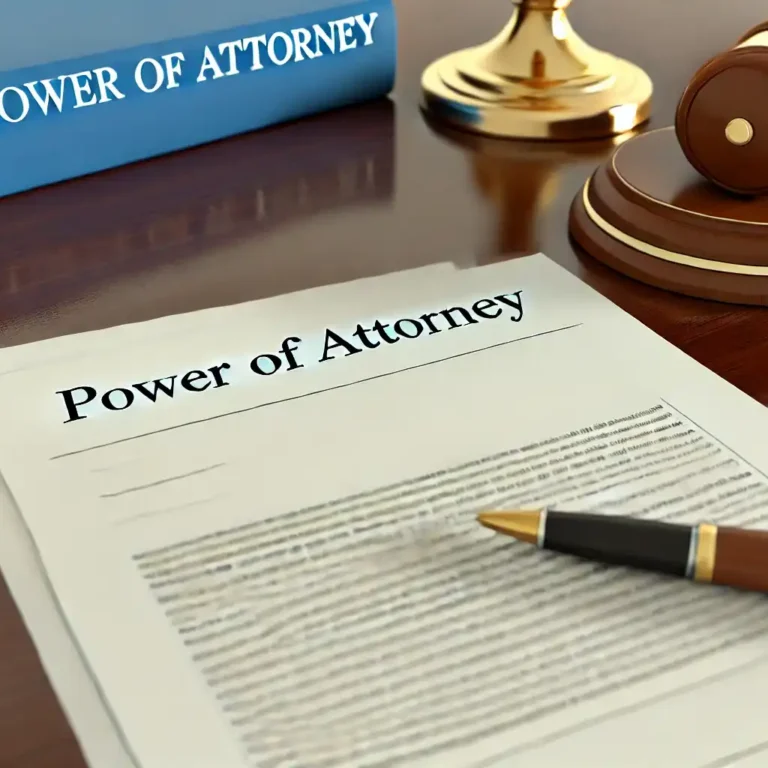Understanding Wills: Essential Guide to Protecting Your Legacy

What is a Will?
A will is a legally binding document that outlines how a person’s assets, property, and other personal matters will be handled and distributed after their death. It also allows the individual (the testator) to name an executor, appoint guardians for minor children, and specify funeral arrangements. Wills serve as the cornerstone of any estate plan and provide a structured and legally recognized way to ensure that the testator’s wishes are honored after death.
From a legal perspective, the most critical role of a will is to prevent the application of state intestacy laws, which dictate asset distribution when there is no valid will. Intestacy laws often distribute assets in ways that do not align with the individual’s preferences, making a well-drafted will essential for ensuring that property is inherited as intended.
Key Components of a Will:
- Appointment of an Executor: The will names a person (the executor) to manage the estate, ensuring that debts are paid and assets are distributed according to the will’s terms.
- Asset Distribution: Specifies who will receive the testator’s property, including real estate, financial accounts, and personal items.
- Guardianship for Minor Children: If applicable, the will allows the testator to name a guardian for any minor children.
- Funeral Instructions: The testator may also include directions for funeral arrangements or other post-death preferences.
Types of Wills
There are various types of wills, each serving a different legal function. Understanding the differences between them is essential to choosing the right type for your specific situation. Below are some of the most common types of wills:
1. Simple Will
A simple will is the most common and straightforward type of will. It outlines how a person’s assets will be distributed and appoints an executor to manage the estate. Simple wills are ideal for individuals with relatively uncomplicated estates and clear intentions about how they want their assets distributed.
Example:
John creates a simple will naming his wife as the sole beneficiary of his estate and appointing her as the executor. He also names a backup executor and alternate beneficiaries in case his wife predeceases him.
Pros:
- Easy to create and manage.
- Suitable for individuals with modest or straightforward estates.
Cons:
- Less flexible when it comes to complicated assets or tax planning.
2. Living Will
A living will, also known as an advance healthcare directive, is different from a traditional will. It is a legal document that outlines a person’s preferences for medical treatment in situations where they are incapacitated and unable to communicate their wishes. Unlike a regular will, a living will does not deal with asset distribution but with healthcare decisions, such as the use of life-sustaining treatments.
Example:
Sarah includes instructions in her living will stating that she does not want to be kept on life support if doctors determine she is in a vegetative state with no chance of recovery.
Pros:
- Ensures medical preferences are honored.
- Reduces the burden on family members making difficult decisions.
Cons:
- Only applies to healthcare decisions and not financial or estate matters.
3. Testamentary Trust Will
A testamentary trust will is a type of will that creates a trust upon the testator’s death. This trust is typically used to manage assets for beneficiaries who may not be ready to inherit a large sum of money, such as minor children. The will outlines the terms of the trust, including who the trustee is and how the assets will be managed and distributed.
Example:
Jane creates a testamentary trust will that places her entire estate into a trust for her two young children. The trustee will manage the trust until they turn 25, at which point they will inherit the remaining assets.
Pros:
- Provides structured control over how assets are distributed.
- Protects beneficiaries from mishandling large inheritances.
Cons:
- Trust does not take effect until after death, which means assets must go through probate first.
4. Pour-Over Will
A pour-over will works in conjunction with a living trust. This type of will ensures that any assets not transferred into the trust during the testator’s lifetime are “poured over” into the trust after death. It acts as a safety net for forgotten assets, ensuring that all property is eventually distributed according to the terms of the trust.
Example:
David sets up a living trust and transfers most of his assets into it. He also creates a pour-over will, which states that any remaining property not transferred into the trust before his death will be transferred into the trust and distributed according to its terms.
Pros:
- Complements a living trust and ensures assets not already in the trust are handled according to the trust’s terms.
Cons:
- Assets must still go through probate before being transferred to the trust.
5. Joint Will
A joint will is a single will created by two individuals, typically a married couple, that outlines how their assets will be distributed upon their deaths. Joint wills are binding and cannot be changed after the first spouse dies, which can be limiting in some cases.
Example:
Mary and Tom create a joint will leaving everything to each other and, upon the second spouse’s death, to their children. After Tom’s death, Mary cannot change the will to distribute her assets differently.
Pros:
- Useful for couples with a clear, shared estate plan.
Cons:
- Inflexible, as the surviving spouse cannot alter the terms after the other’s death.
6. Holographic Will
A holographic will is a handwritten will that is signed by the testator but typically does not require witnesses. These wills are valid in some states but are generally not recommended due to their informal nature and the high potential for disputes.
Example:
Sam writes a holographic will leaving his entire estate to his sister. Since he lives in a state that recognizes holographic wills, his handwritten document is legally binding as long as it is signed and can be proven authentic.
Pros:
- Can be created quickly without legal assistance.
Cons:
- High risk of being contested or deemed invalid due to errors or lack of clarity.
7. Nuncupative Will
A nuncupative will is an oral will, usually made in extreme circumstances, such as during a medical emergency or imminent death. These wills are only valid in specific situations and are often limited to small amounts of property.
Example:
John, facing imminent death in a hospital, verbally tells his friend that he wishes to leave his car to his son. Depending on the state, this oral declaration may be recognized as a valid nuncupative will.
Pros:
- Allows for last-minute declarations when writing a will is impossible.
Cons:
- Rarely accepted in court, and often subject to dispute.
Probate and Wills
Wills typically go through the probate process, which is a court-supervised procedure for validating the will and ensuring that the testator’s assets are distributed according to their wishes. Probate involves several steps, including:
- Filing the Will with the Probate Court: The executor files the will, and the court verifies its validity.
- Inventorying the Estate: The executor takes stock of the deceased’s assets, including property, bank accounts, investments, and personal items.
- Settling Debts and Taxes: The executor uses estate funds to pay off any debts, including taxes, that the deceased owed.
- Distributing Assets to Beneficiaries: Once debts are paid, the remaining assets are distributed according to the terms of the will.
- Closing the Estate: After all assets are distributed, the executor files a final accounting with the court, and the estate is officially closed.
Intestacy: Dying Without a Will
If someone dies without a valid will, they are considered to have died intestate, and state intestacy laws determine how their estate is distributed. Typically, the estate passes to the deceased’s closest relatives, such as a spouse or children. Intestacy can create complications, especially for individuals with complex family structures or specific wishes for how their assets should be handled. A valid will prevents these complications and ensures that the testator’s intentions are honored.
Importance of a Valid Will
From a legal perspective, a valid will is crucial for ensuring that an individual’s estate is managed and distributed according to their wishes. A will reduces the risk of family disputes, clarifies the testator’s intentions, and provides clear instructions for managing their property after death. In addition, a will allows for the appointment of an executor, ensuring that someone trustworthy is responsible for overseeing the estate.
However, it is equally important to ensure that the will is legally valid. Most states require that the will be written, signed by the testator, and witnessed by two individuals who are not beneficiaries under the will. Failing to meet these requirements can result in the will being contested or invalidated in probate court.
Conclusion
A will is an essential legal document that ensures your assets are distributed according to your wishes, rather than being subject to state intestacy laws. Whether you have a simple estate or a complex financial situation, a well-drafted will is crucial for protecting your legacy and providing for your loved ones. Understanding the different types of wills—such as simple wills, living wills, testamentary trusts, and pour-over wills—allows you to choose the best option for your estate planning needs.
For legal advice and guidance on creating a will that meets your specific circumstances, consult with a lawyer who specializes in estate planning. LegalDocExpert.com can assist in drafting a comprehensive will that safeguards your estate, ensures your wishes are honored, and provides peace of mind for you and






